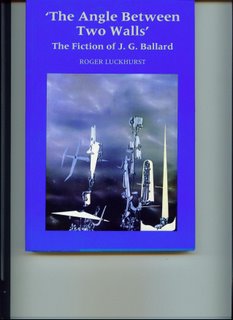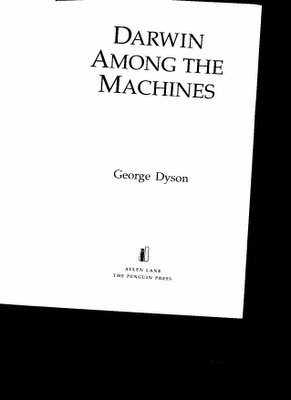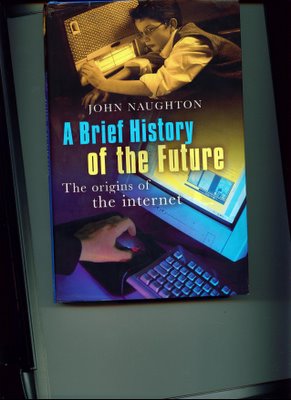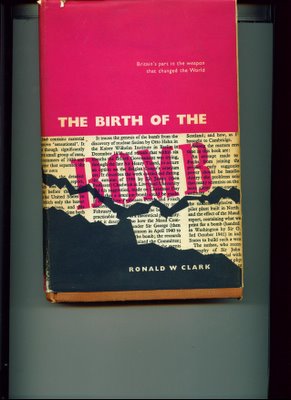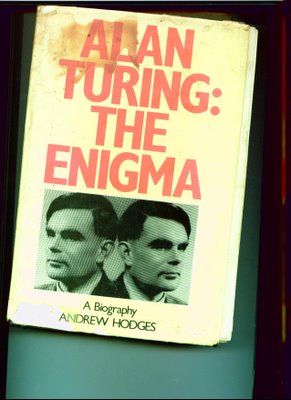The Making of a Counter Culture: Theodore Roszak :1969The theme of 'counterculture' has been one I have kept returning to here. Looking back at punk, it has become clear that it did not emerge spontaneously in late 1975, but was a continuation by other means of the counterculture.
It is also clear that other strands of the counterculture continued a parallel development through the seventies and eighties, to emerge as (for example) the anti-road protests of the early nineties. These in turn fed into the still ongoing anti-globalisation protest movement.
Within the popular culture/ 'youth' subcultural strand, punk directly gave rise to the still significant goth subculture. There was also a degree of overlap with the free festival [Stonehenge] and 'new age traveller' subcultures and some elements of the dance music subculture which emerged in the late eighties and which still continues as a strand of popular culture.
However, despite all the sound and fury, despite all the shock horror headlines, the continuation of subcultural/ popular cultural elements of the counterculture over the past 40 years is a sign of failure rather than success. Even the adoption of countercultural themes into academia via postmodernism must be counted a similar failure.
How can I be so sure that the countercultural project has failed? Going back to Roszak and his contemporary (written in 1968, published in 1969) account, the dominant culture against which and as an alternative to the counterculture emerged was technocratic culture.
So where did the technocracy come from? Well, Roszak specifically mentions the threat of thermonuclear war as the creation of technocracy. The hydrogen or thermonuclear bomb would have been inconceivable had nuclear fission not been achieved during World War II. It also required, to make the calculations necessary, the use of computers. These were another creation of World War II. The ENIAC computer in the USA was completed in February 1946 and was immediately used by John von Neumann to calculate three partial differential equations to test the viability of a hydrogen 'superbomb'.
It is a ferociously complex bit of history to decode, but to summarise : 1. The German which arose in 1871 (following Prussia's victory in the Franco-Prussian war) was a new type of nation-state. It was in many ways a 'revolutionary' entity, one in which power lay in the hands of a military-industrial elite.
2. The emergence of this new state led to the break down of the post-Napoleonic 'balance of power' in the late 19th century. This in turn created the conditions for the Great or First World War.
3. The Great War was an industrial war. For example, without the advances made by German chemical scientists, which allowed the industrial scale production of nitrogen, Germany would have been unable to continue the war beyond 1916.
4. The Great War was also the first 'total' war, that is a war in which the civilian population played a direct part in the war effort through their role as an industrial workforce geared up to wartime industrial demands.
5. With the Great War (part two)/ WW II , the UK dedicated every possible resource to the war effort. These resources included scientific and technological developments. Radar was given immediate priority, but this was later to be matched by the development of mathematical code-breaking (including the use of computers) at the Bletchley Park complex, which eventually employed 10 000 people. The UK also began a nuclear bomb project.
6. At the same time, civil society was organised, managed and controlled at every level under conditions of secrecy and security. It can be argued that the UK mobilised 'voluntarily' more effectively and thoroughly for total war than any other country, including Nazi Germany and the USSR.
7.The entry of the USA into the war did not require such an extreme mobilisation of every single resource into the war effort. However the resources and level of secrecy required to create the nuclear bomb were unprecendented. The need for secrecy and security meant that the whole Manhattan project (as it was called) had to be kept hidden not just from the enemy powers and notional allies (i.e. the USSR), but also from those within the USA who might question the seemingly 'non-essential' use of resources the project required.
8. Technocracy and Global Climate Change8.1 The technocracy/ technocratic state culture which Roszak identifies as the inspiration of a 'counter culture' has its roots in the 19th century, in the revolutionary nation-state of Germany.
8.2 The technocratic state reached its peak of achievement in the UK and USA in the 1940ies, and achieved ultimate 'victory' over its rival (the USSR) in the 1980ies.
8.3 That the 'total' mobilisation of all available resources, from the most abstract reaches of pure mathematics to the most basic needs of everyday life, could achieve the seemingly impossible - from the cracking German codes to the creation of a nuclear bomb - imbued the technocratic state with an almost magical belief in its power.
8.4 That the 'war-winning' developments took place under a cloak of secrecy is also significant. Only a handful of individuals were ever aware of the full scope of these ultra-secret projects. To illustrate - when the nuclear bombs were ready to be dropped on Japan in August 1945, both the UK and USA new leaders (Attlee and Truman respectively). Neither of these new leaders were aware that an atomic bomb was now science fact rather than science fiction.
8.5 Although the technocratic state is no longer as supremely self-confident of its 'magical' powers as it was in the immediate post-war era, the belief in the ultimate triumph of technological will remains. The embedded structures of power, the collective mind-set is unable to grasp the reality of the situation.
8.6 Nor is there any apparent willingness on the part of the citizens of the technocratic state to accept an equivalent to the austerity of the forties since the threat posed remains elusive rather than obvious.
8.7 To sum -up: the technocratic state resembles a pyramid of power 'hidden' within the structures of everyday life. This pyramid was created during WW II in response to the direct threat posed by Germany and Japan. It was maintained during the Cold War era as the 'nuclear state'. However, whilst supremely effective against concentrated threats (such as those posed by rival military-industrial complexes), it is ineffective against diffuse threats.
9. Windmills and psychedelic dreams.9.1 Written in 1968, Roszak's critique of the counterculture highlights its cultural revolutionary aspects. Against the enforced rigidity and willed focus of their parents' generation, of the forties generation, the sixties generation reveal a displaced explosion into 'madness', into individuality and celebration of being over doing.
9.2 This brief cultural explosion remains the mainstream perception of the counterculture- with its effective death marked by the re-election of President Nixon in 1972.
9.3 The counterculture did not die in 1972. Instead it mutated. One strand, stimulated by the events of 1973/4 (when there was world wide 'oil crisis' provoked by an Arab-Israeli war), sought practical ways to create effective alternatives to the technocratic state.
9.4 This strand, the alternative or radical technology strand, went to the heart of the problem- the structure of industrial/ technological society. [Roszak briefly touches on this possibility in the context of events in France in 1968, wondering if the workers mobilised then would ever have been prepared to ' deconstruct' car factories, nuclear power plants or the Concorde project].
9.5 Radical technology challenged the physical power system itself. Take electricity generation. The paradigmatic model was (still is) the centralised power station. This late Victorian invention had its roots in the late 18th century industrial revolution when production of cloth was centralised in large urban factories. (Previously, cloth making had been a widely distributed rural 'cottage' industry). Using steam power, electricity was centrally generated and then distributed outwards. As the technology developed, larger and larger power stations were built. These were then linked up in the 1930ies via a centrally controlled National Grid.
9.6 The radical technologists turned this model on its head. They suggested and developed small scale, micro-electric power sources- using wind, water and solar energy. Combined with effective insulation of houses, local production of food and manufactured items for local consumption, a shift to a co-operative rather than competitive social economy our dangerous dependence on fossil fuels (with nuclear power as the technocratic alternative) could be overcome.
9.7 It was an attempt, thirty years ago, to develop an effective and viable sustainable economy and society. Had this 'sensible' development of the counterculture's radical and revolutionary agenda been adopted wholeheartedly, the effects global climate change would have been mitigated- even eliminated.
10 What went wrong? 10.1 Alan Turing. In 1936, Alan Turing created a mathematical model which is the basis for all existing computers. In 1939, Alan Turing joined the team of code-breakers at Bletchley Park. He played a critical role in the decoding of the German Enigma codes and inspired the creation of Colossus, the world's first digital computer. Alan was also gay. Threatened by a court case which would have revealed his sexuality and created a 'national security' scandal, he committed suicide in 1954.
10.2 In his biography of Turing, Andrew Hodge makes explicit the destructive shift which occurred between 1939 and 1954. In 1939, the technocratic state had yet to be created. An 'alternative' or 'radical' intelligence like Turing's could still be accepted (given the extreme threat posed by Nazi Germany) within the mainstream and could still influence its direction. By 1954, this situation had changed. The immediate threat had been overcome and creative individuals like Turing (and Robert Oppenhiemer in the USA) were no longer required in the long Cold War against the USSR. Such dangerously creative individuals were once more viewed as liabilities rather than assets.
10.3 By the 1970ies, the technocracy was structurally incapable of absorbing new ideas, especially when those new ideas challenged its very physical integrity. Instead, the technocracy displaced the challenge posed by the oil threat onto the Soviet Union, thus the 1980ies heightening of the Cold War and the negative conservative [Reagan/ Thatcher] cultural reaction to the counterculture.
11. What can be done?
It is possible, perhaps even probable, that global climate change is irreversible. The collective structural inertia of the technocracy is such that the necessary measures will not be taken. Politically, no government will be able to impose the 'austerity' measures necessary.
What needs to be done is to start planning for the impact of climate change. To start carrying out risk assessments and generally work towards mitigating the likely impact. To launch a survival programme.
 How is this for an Xmas present...
How is this for an Xmas present...
